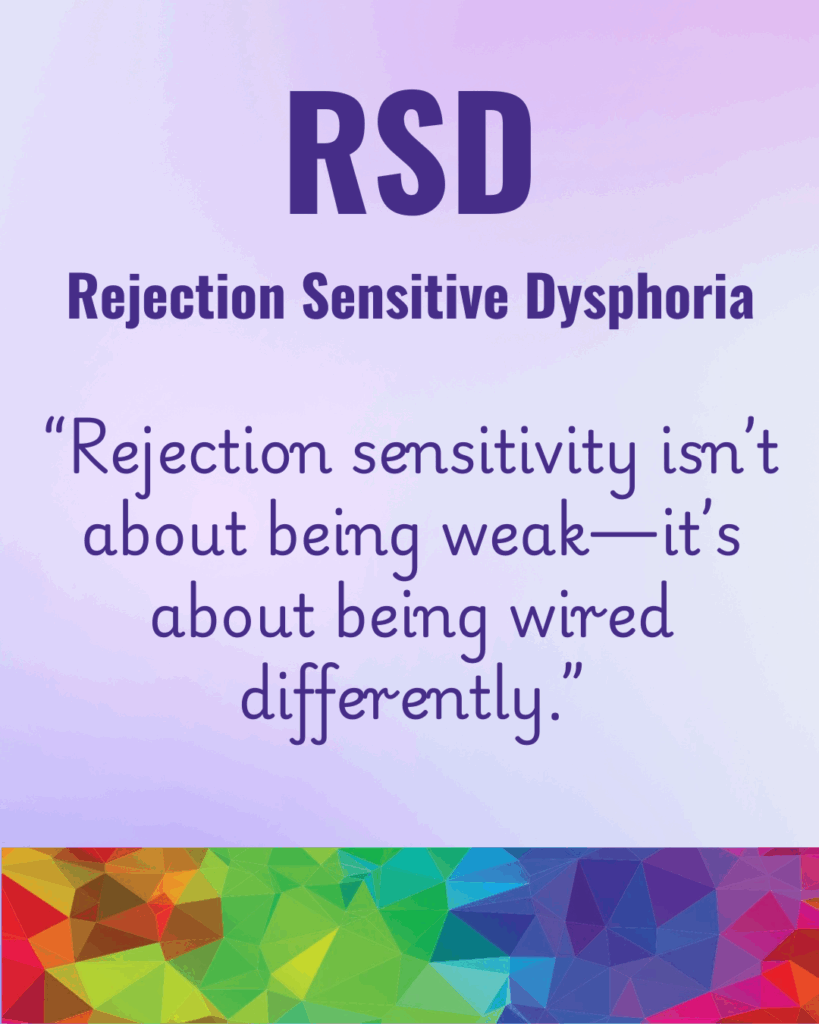
Rejection Isn’t Just Hard—It can be Devastating
Have you ever had an emotional overreaction to a small piece of feedback? Felt like someone not texting you back meant they hated you? Or spent days replaying a conversation where you might have said the wrong thing? If so, you might be dealing with Rejection Sensitive Dysphoria—a condition that makes even minor criticism feel unbearable.
In this episode of Divergent Paths, I share personal stories and practical insights about how rejection sensitive dysphoria in ADHD shows up in everyday life—and what helps.
What Is Rejection Sensitive Dysphoria?
Rejection Sensitive Dysphoria (RSD) is more than just being sensitive. It’s a dysphoric reaction—meaning the emotional pain is outsized compared to the trigger. For people with ADHD or other unique brains, RSD can cause overwhelming feelings of shame, inadequacy, and fear of abandonment—even from the smallest perceived slightRSD Transcript.
“The emotion experienced is bigger than the cause of it.”
How It Shows Up (Even When We Don’t Expect It)
In school, neurodivergent kids are often labeled as disruptive, lazy, or unmotivated, not because they are, but because their brains and behaviors fall outside the norm. Those labels and repeated corrections chip away at self-esteem, especially for undiagnosed kids. Over time, we internalize the message: “I’m wrong. I’m bad. I’ll never be enough.”
“You can’t change your unique brain by not tapping your foot.”
RSD can also sneak into relationships. A simple “we need to talk” can spiral into panic. A delayed text reply feels like confirmation that someone is mad or leaving. And heaven help the person who critiques our work—we might never recover emotionally.
What Helps
There’s no quick fix, but you can build resilience around RSD. Here’s what’s been helping me:
- Awareness: Naming the experience as RSD helps take the shame out of it.
- Therapy: Talking with someone who understands neurodivergence can make a huge differenceRSD Transcript.
- Movement: Physical activity helps regulate my emotions.
- Medication: For me, ADHD meds help prevent my brain from spiraling into worst-case scenariosRSD Transcript.
- Community: Just knowing I’m not alone has changed everything.
“I want people to know you might feel like you’re on a divergent path, but you’re not the only person there.”
You’re Not Broken. You’re Wired Differently.
RSD can make life feel like walking a tightrope—especially when feedback, criticism, or even silence can set off an internal firestorm. But you’re not too sensitive. You’re not dramatic. And you’re definitely not alone.
Understanding rejection sensitive dysphoria in ADHD is the first step toward navigating it with more self-compassion, better support, and fewer spirals.

